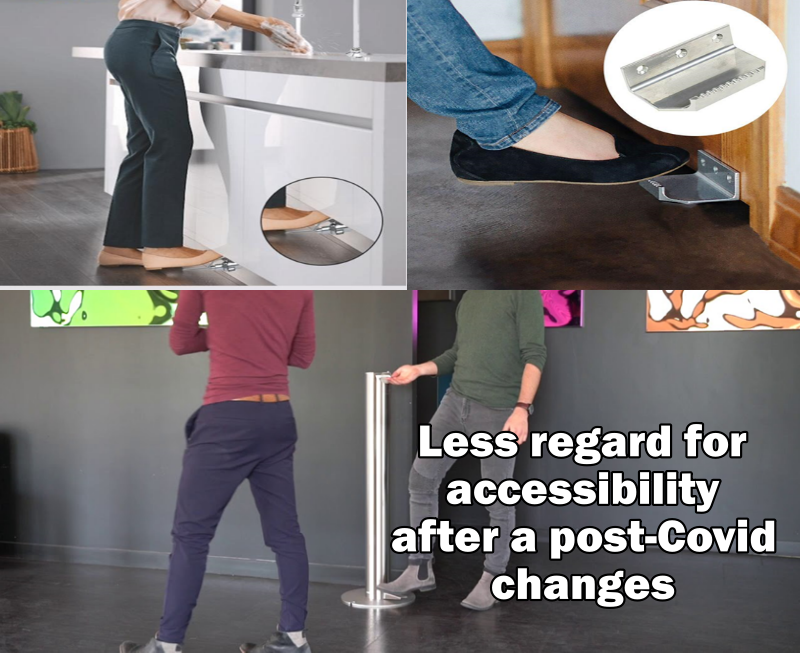
Unlock 2.0 just kicked off in most parts of India and the Lockdowns with their 5 versions got people thinking what would it be like to step out in the post Covid era. The battle with the unknown is still being waged and the world is still getting accustomed to the new normal, but what caught my attention as I moved out of my self-sketched ‘Lakshman Rekha’ were interesting products ready to welcome me, whether at work or plush upmarket condos. They weren’t a surprise for I had seen them floating only in form of attractive photographs and brochures which being an architect were shared with me by various business associates and vendors.
With all good intentions, everyone tried innovating and bringing out a range of no-contact products/devices/services. Some of these products that caught my attention are foot operated sanitizer dispensers, faucet controls and even door openers. Well-meaning neighbors and co-workers insisted on buying and installing these in our premises. Perhaps they never imagined a senior citizen with a walking aid and limited foot balance using them. Or perhaps they ignored the fact that one of the users could be on wheelchair for whom it would be impossible to operate any of these. Anthropometrics for short people and kids are jeopardized for most of these products are meant for standing individuals with ‘normal’ height. As someone who has worked and continues working with Universal design principles as a core design philosophy, I yet again found the ‘new normal’ denying these seven principles which have existed in our society for decades. These principle are as follows –
- Equitable Use.
- Flexibility in Use.
- Simple and Intuitive Use.
- Perceptible Information.
- Tolerance for Error.
- Low Physical Effort.
- Size and Space for Approach and Use.
Case in point – a foot operated door opener, with a printed signage to announce its presence. On first instance looks very thoughtful but rejects almost all above principles of universal design. How? very clearly this is not a comfortable operation for elderly, kids, short people and people with disabilities hence denies first four principles as above. To top it all, when I, someone who fits in the world’s definition of normal, could not operate it, for the door to open denies the 6th principle of low physical effort. And out came my hand grabbing the regular door handle. End of war, my hope for a no-touch egress got shattered and the accessory bought with all good intent did not serve its purpose. I walked out with a fear in my mind about touching the virus in a public building, thanking my stars that I did not loose my balance and fall. As I moved ahead, I was thinking how this money down the drain could have been saved if well-meaning products were designed based on Universal design taking user feedbacks in account.
A Universal design solution in this case is an automatic door opening mechanism which apart from adhering to the design principles listed above also is a no-touch solution.
Clearly, we have hope in Universal design, its time as a designers we take that lost book on Universal Design down our attics and apply in whatever we design from here on for larger good.
